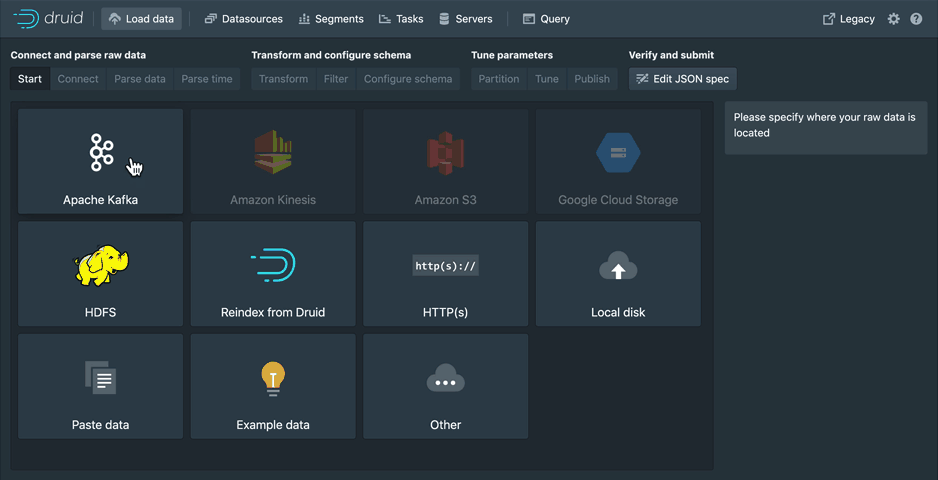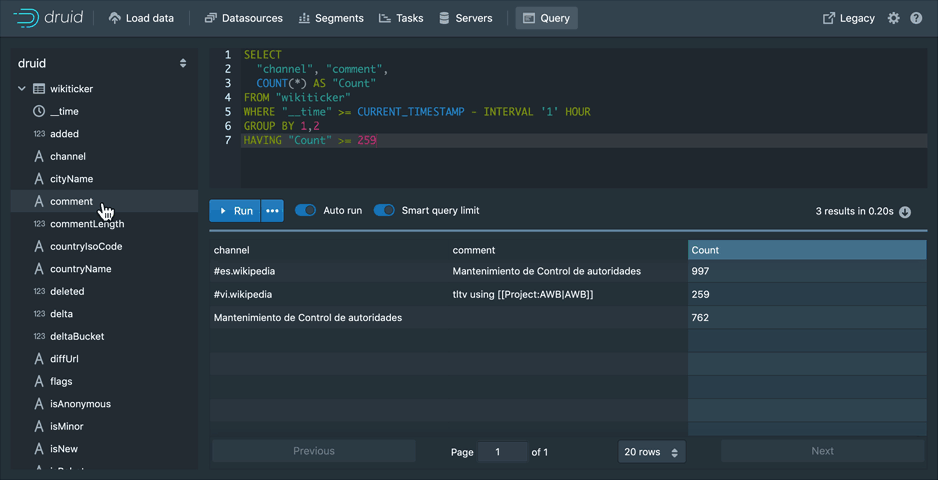This PR aims to make the ParseExceptions in Druid more informative, by adding additional information (metadata) to the ParseException, which can contain additional information about the exception. For example - the path of the file generating the issue, the line number (where it can be easily fetched - like CsvReader) Following changes are addressed in this PR: A new class CloseableIteratorWithMetadata has been created which is like CloseableIterator but also has a metadata method that returns a context Map<String, Object> about the current element returned by next(). IntermediateRowParsingReader#read() now attaches the InputEntity and the "record number" which created the exception (while parsing them), and IntermediateRowParsingReader#sample attaches the InputEntity (but not the "record number"). TextReader (and its subclasses), which is a specific implementation of the IntermediateRowParsingReader also include the line number which caused the generation of the error. This will also help in triaging the issues when InputSourceReader generates ParseException because it can point to the specific InputEntity which caused the exception (while trying to read it).
Website | Documentation | Developer Mailing List | User Mailing List | Slack | Twitter | Download
Apache Druid
Druid is a high performance real-time analytics database. Druid's main value add is to reduce time to insight and action.
Druid is designed for workflows where fast queries and ingest really matter. Druid excels at powering UIs, running operational (ad-hoc) queries, or handling high concurrency. Consider Druid as an open source alternative to data warehouses for a variety of use cases. The design documentation explains the key concepts.
Getting started
You can get started with Druid with our local or Docker quickstart.
Druid provides a rich set of APIs (via HTTP and JDBC) for loading, managing, and querying your data. You can also interact with Druid via the built-in console (shown below).
Load data
Load streaming and batch data using a point-and-click wizard to guide you through ingestion setup. Monitor one off tasks and ingestion supervisors.
Manage the cluster
Manage your cluster with ease. Get a view of your datasources, segments, ingestion tasks, and services from one convenient location. All powered by SQL systems tables, allowing you to see the underlying query for each view.
Issue queries
Use the built-in query workbench to prototype DruidSQL and native queries or connect one of the many tools that help you make the most out of Druid.
Documentation
You can find the documentation for the latest Druid release on the project website.
If you would like to contribute documentation, please do so under
/docs in this repository and submit a pull request.
Community
Community support is available on the druid-user mailing list, which is hosted at Google Groups.
Development discussions occur on dev@druid.apache.org, which you can subscribe to by emailing dev-subscribe@druid.apache.org.
Chat with Druid committers and users in real-time on the Apache Druid Slack channel. Please use this invitation link to join and invite others.
Building from source
Please note that JDK 8 is required to build Druid.
For instructions on building Druid from source, see docs/development/build.md
Contributing
Please follow the community guidelines for contributing.
For instructions on setting up IntelliJ dev/intellij-setup.md







